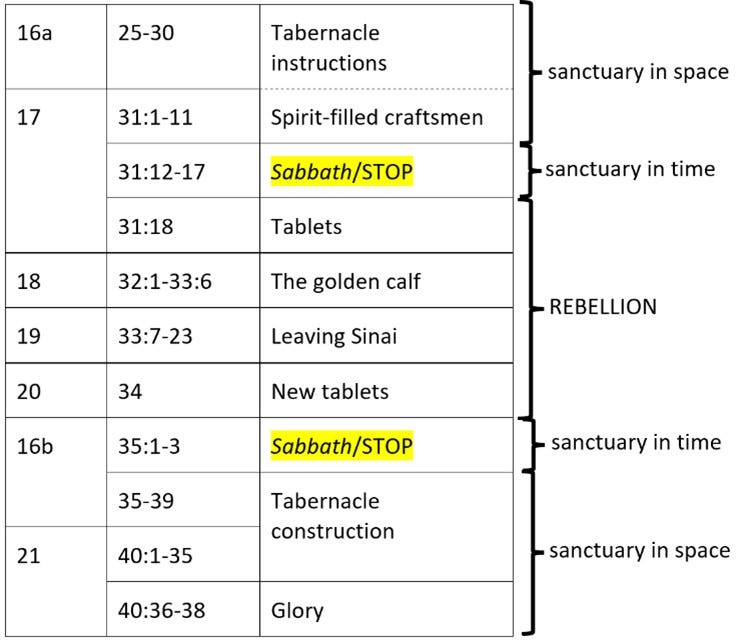Preach
Scripture
Questions
YHWH had said he would not go up to the Promised Land [v3] because of the golden calf rebellion. Why might he change his mind [v6]? And this is where we jump in this week.Moses sets up “the tent” [v7] and enters in and out [vv8-11a].
The account of the construction of the tent/tabernacle is two chapters later [35:1-40:35]. This means that the events are not always being told in the correct chronological order[1]. Modern films, TV show, novels etc also do this. The tabernacle and sabbath rest are a recreation story. The occur before and ager the rebellion. What might have been the purpose of putting the horrible rebellion in the middle?
Joshua and Jesus are the same name in Hebrew and Greek and many languages today. How is Joshua, other than his name, a picture of THE Jesus [v11]?
What is Moses’ concern in vv12-13 [see Q1. and v3]? Can you identify with Moses doubts? How can we know that God has forgiven us when we rebel [v6 perhaps]? How does YHWH assure Moses [v7]?
Moses wants the extra assurance of seeing YHWH’s glory [v18]. However, glory [v18] = face [פָּנֶה, pāneh] [v20] = presence [Genesis 3:8, 4:16; Exodus 1:12, 9:30 etc.]. Face and presence are the same word in Hebrew. Why can we not see God’s glory/face/presence [v20; John 1:18; 1 Timothy 6:16 etc.]?
How does YHWH shield Moses from his glory [vv21-23]?
YHWH is described as having a hand and a back [v23]. Is this just metaphorical or is this the angel of YHWH? What do you think? See Isaiah 63:9…
In all their distress, there was no distress,
and THE messenger, מַלְאָךְ [malʾāk̲ i.e. angle], of his presence, פָּנֶה [pāneh lit. face] saved them,
in his love and compassion he himself redeemed them,
and he lifted them up,
and he supported them all the days of old.
Isaiah 63:9
[1] The alternative is that this is another tent/tabernacle. If so, where does it suddenly appear from? Would another tent, not commanded by YHWH, have been permitted. In favour of this being another tent is that Moses was not allowed to enter the tent/tabernacle [40:35].
[2] This is close, but not quite the same, as πρόσωπο, face and person, in Greek.
More
Here is an outline of the last part of Exodus. Events may not be strictly chronological to make deeper theological points for the hearer…
Bible Project’s Exodus 19-40 study notes




